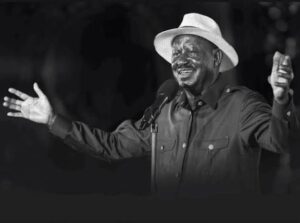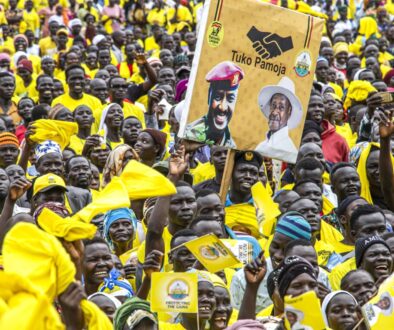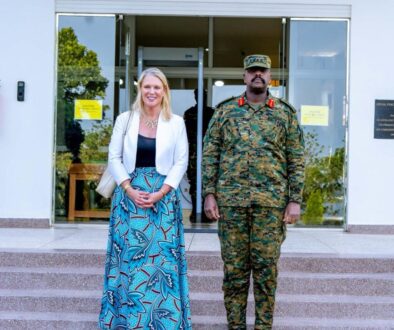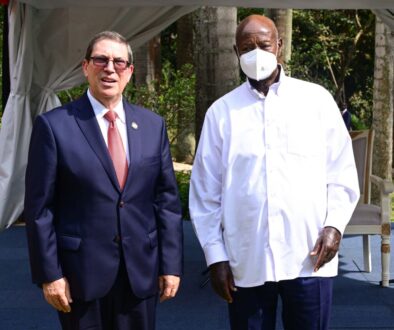Uganda Parliament honours the late Raila Odinga
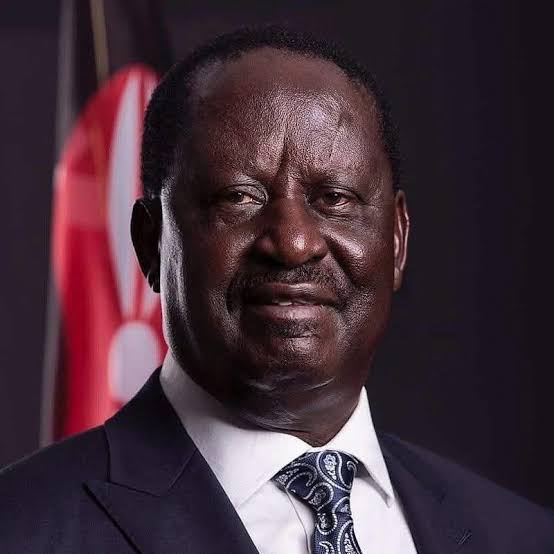
The late former Kenyan Prime Minister, Raila Amollo Odinga.
By Our reporter
KAMPALA – Lawmakers have hailed the late former Kenyan Prime Minister, Raila Amollo Odinga for his Pan Africanism spirit saying that he was a leader revered across Africa and the whole world.
Odinga died in India on Wednesday, 15 October 2025 after he reportedly suffering a cardiac arrest.
He was laid to rest on Sunday, 19 October 2025 in his ancestral home in Bondo, near Lake Victoria, Western Kenya.
Members of Parliament paid tribute to Raila Odinga during the plenary sitting on Monday, 20 October 2025.
In his communication, Deputy Speaker Thomas Tayebwa said that Raila Odinga contributed towards the development and promotion of democracy across Africa.
“He was a true statesman, a Pan Africanist and he was a good friend of Uganda, a good friend of the region and we shall miss him. Our condolences to the people of Kenya, Africa and the world at large,” Tayebwa said.
The Leader of the Opposition, Hon. Joel Ssenyonyi described Odinga as a political giant who fought for his country’s democracy.
“Odinga sought to become President of Kenya and it did not happen but his contribution to Kenya’s democracy is indelible. We do sympathise with his family and the people of Kenya”, Ssenyonyi said.
The Minister of Justice and Constitutional Affairs, Hon. Nobert Mao applauded Odinga for championing the East African Community integration.
“Those of you who were here in the previous parliaments, there were two bodies; the Great Lakes Parliamentary Forum on Peace and the Parliamentary Network on World Bank. The late Raila Odinga was a key promoter of those bodies,” Mao said.
Tororo District Woman Representative, Hon. Sarah Opendi said that Odinga shaped the politics of Kenya adding that his counsel was valuable to Kenya’s presidents.
“No president ruled Kenya without engaging with Odinga, little wonder he was commonly referred to as Baba. There is a lot that we can learn from him, there was unity in Kenya, everybody was mourning”, said Opendi.
She added that Odinga will be remembered for advocating for infrastructural development in East Africa, especially the Standard Gauge Railway.
Odinga who died aged 80 was an avid opposition leader, who became Prime Minister in 2008. His political journey saw him form alliances with former Kenyan President, Uhuru Kenyatta in 2018 and incumbent President, William Ruto in 2024.
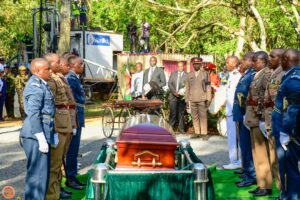
The late Raila Odinga’s casket lowered to rest on Sunday, 19 October 2025 in his ancestral home in Bondo, near Lake Victoria, Western Kenya.
Who was Raila Odinga?
Raila Amollo Odinga was one of Kenya’s most influential political figures and has been a central player in the country’s political landscape for over four decades.
Known for his fiery rhetoric, unwavering opposition stance, and a career marked by both triumphs and controversies, Raila’s name is almost synonymous with Kenya’s struggle for democratic reform.
Born on January 7, 1945, in Maseno, Kisumu County, Raila is the son of Jaramogi Oginga Odinga, Kenya’s first Vice President and a key figure in the country’s independence movement.
Following in his father’s footsteps, Raila entered politics in the late 1970s, gaining national attention in the early 1980s as a vocal opponent of the one-party regime of President Daniel arap Moi.
In 1982, Raila was arrested and detained without trial for allegedly being involved in a failed coup attempt against Moi’s government.
He would spend a total of nearly nine years in detention over various periods, earning him the title of a political prisoner and symbol of resistance against authoritarianism.
Raila’s political journey has seen him align with and break from multiple parties and coalitions.
He was a founding member of the Forum for the Restoration of Democracy (FORD) and later the National Development Party (NDP), before merging with the ruling party, KANU, in 2001—only to part ways again soon after.
In 2005, following the defeat of a government-backed constitutional referendum, Raila led the formation of the Orange Democratic Movement (ODM), which became a major opposition force.
Since then, he has run for the presidency five times — in 1997, 2007, 2013, 2017, and 2022 — and although he has never clinched the presidency, he has remained a significant political and reformist figure.
His most controversial moment came after the 2007 general election, where post-election violence erupted following a disputed result. Over 1,000 people died, and hundreds of thousands were displaced.
A power-sharing agreement brokered by the international community led to Raila being appointed Prime Minister under President Mwai Kibaki from 2008 to 2013—the only time Kenya has had such a position in recent history.
In recent years, Raila shocked both supporters and critics by reconciling with his former political rival, President Uhuru Kenyatta, through the symbolic “Handshake” in March 2018.
The move, while hailed by some as a step toward national unity, also divided opinion, especially among Odinga’s traditional base who viewed it as a betrayal of the opposition cause.
In the 2022 presidential elections, Raila made his fifth and possibly final bid for the presidency, backed by President Kenyatta. He narrowly lost to William Ruto, Kenya’s current president, a result he challenged in court but was upheld by the Supreme Court.
Despite never ascending to the presidency, Raila’s impact on Kenya’s democratic evolution is indelible.
He has championed constitutional reforms, multiparty democracy, and social justice, often at great personal cost. He remains a towering figure in African politics and continues to command significant influence, both within Kenya and beyond.
Raila has also taken on a more continental role, including being nominated as the African Union’s High Representative for Infrastructure Development, a position that underscores his continued relevance in regional and global affairs.
